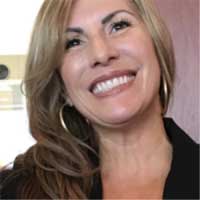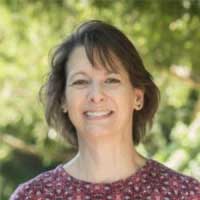The Audiology and Speech-Language Pathology Interstate Compact (ASLP-IC) is a groundbreaking agreement between states that offers a pathway for audiologists and speech-language pathologists to practice across state lines without applying for a new license. Several states have enacted this compact into law, allowing professionals to provide services in person and through telehealth. The ASLP-IC addresses the increased demand for audiology and speech-language pathology services, making it easier for patients to access the care they need.
In addition to streamlining the process of obtaining multi-state licensure, this compact offers several significant benefits to the public, such as improved continuity of care, portability options for military spouses, increased access and choice for audiology and speech-language pathology providers, and faster processing times.
“We started looking at this issue back in 2017 and contracted with the Council of State Governments National Center for Interstate Compacts to help us develop and promote an interstate compact for our audiologists and speech-language pathologists,” shares Susan Adams, director of state legislative affairs for the American Speech-Language-Hearing Association (ASHA). “We’ve been in state legislatures since 2020. When Covid hit, we thought we were dead in the water, but we passed six states in the first year. Now at 23, with 14 states currently pending. One of the pending states, Virginia, has already passed the legislature. We’re just waiting for the governor to sign the bill.”
“I’m proud to work with this profession. It is a very undervalued profession by the general public because they don’t understand just how vulnerable populations are that speech pathologists and audiologists work with. They do amazing work with children, the elderly, and with all sorts of conditions that affect hearing, speech, and swallowing,” shares Nahale Freeland Kalfas, legal counsel at the National Center for Interstate Compacts. Kalfas was one of the co-drafters for the ASLP-IC.
Getting states on board has been a long process involving much advocacy work: “Many of the states that have passed have been due to the state associations and their willingness to be on the ground helping pass this legislation. In Virginia, for example, an ASHA staff member happened to have a great relationship with her delegate, and they asked her to introduce this bill for us. So a lot of them are happening that way where it’s just somebody knows somebody, and they asked to have the bill introduced,” says Adams. “We also target states where they passed other compacts, for example, and are friendly to compacts. As it’s happening more and more as legislators get used to compacts, and they’re starting to feel more comfortable with them.”
Everyone can help advocate for this compact, and there is no better time to do it than Speech-Language Pathologist Month in May. “On ASHA’s website, we have an active ‘take action’ link. If your state has not passed legislation, we give you a draft letter that you can send to your legislators, state senators, and state representatives to let them know you’re interested in the compact,” encourages Adams. “We’ve also had legislators reach out to us because they got a message from one of their constituents, so it works.”
Read on to learn more about compacts, how the ASLP-IC will work, and the positive impact it can have.
Meet the Experts

Nahale Freeland Kalfas, JD
Nahale Freeland Kalfas is a solo practitioner specializing in administrative law. She received her JD from Duke University School of Law and has been practicing law for the past 14 years. Kalfas is currently the general counsel for the North Carolina Board of Examiners for Speech and Language Pathologists and Audiologists. In this role, she is responsible for prosecutorial, regulatory, and compliance matters related to the board’s activities. She also serves as a legal counsel with The Council of State Governments, where she provides legal advice on various topics, including administrative law, health care law, and public policy. She was the co-drafter for the Audiology Speech Language Pathology Interstate Compact (ASLP-IC).

Susan Adams, Esq.
Susan Adams, Esq. is an experienced public policy professional with a distinguished career in both the legislative and regulatory environment and grassroots advocacy at the state level. She is currently the director of state legislative affairs for the American Speech-Language-Hearing Association (ASHA). At ASHA, she has been instrumental in introducing the ASLP-IC and helping it pass in numerous state senates.
She graduated from the University of Baltimore School of Law and has served for the American Chemistry Council and the Humane Society of the United States prior to her current role.
What is an Interstate Compact?
“An interstate compact is an agreement between states and can be a way to create licensure portability,” explains Kalfas. “With this compact, an audiologist or speech-language pathologist license is portable from state to state to state. Member states enact a bill using the model language, bringing them into the interstate compact. So, in addition to that being a bill, it’s also a contract.”
Many Americans benefit from compact privileges every day, often without realizing it. “Your driver’s license is an interstate compact. So long as you have a home state license in good standing, you don’t have to stop in every single state, go to the DMV, and get a new license. You can drive there but have to abide by the rules of the road while you’re in that state even if your license is from a different state with different laws,” says Kalfas.
Compacts between states are not a new concept. “Compacts have existed for a long time and are part of constitutional law. They are included in the contracts clause of our constitution that governs states rights to contract with each other. If it’s an area where the federal government would have jurisdiction, then you need congressional consent, but otherwise, states are free to work together like this,” explains Kalfas. “There are many types of compacts, such as shared waterways and natural resources. There are also a number of compacts in the area of juvenile transport and adult offender supervision and probation.”
Several healthcare professions have been working hard at professional licensure interstate compact programs, including Interstate Medical Licensure Compact (IMLC), Nurse Licensure Compact (NLC), Advanced Practice Nurse Compact (APRN Compact), Emergency Medical, Physical Therapists Licensure Compact (PT Compact), and Psychology Interjurisdictional Compact (PSYPACT).
How the ASLP-IC Works
The ASLP-IC works like many other interstate compacts: “You have an initial audiology or speech-language pathology license in your home state,” explains Adams. “We will have a database where practitioners can say, ‘I want to get a privilege to practice in this other state.’ If that state has indicated that you’re eligible, and the practitioner has not had any encumbrances on that license for the last two years, they can get the privilege to practice. They have to pay a fee to the Compact Commission and a separate fee to the state where they get the privilege. It is intended to be a quick turnaround of a day or two rather than weeks or months when trying to get a state license.”
“Your home state has to be a member of the compact to be able to practice in every other state in the compact,” adds Kalfas. “This is why the ASHA and everyone else is interested in you creating a compact nation so that there is seamless portability and there is an increase in access to competent care. “This helps protect the public as well because practitioners are being vetted against an up-to-date data system that ensures licenses are in good standing and checks if there have been any adverse actions that lead to an encumbrance on a license. So long as you’re in good standing, you can practice in all the member states, whether in person or via telehealth.”
Some professions are harder to enact interstate compacts than others. “This profession has a decent amount of uniformity in licensing requirements. It’s not like some of the other professions that have this really wide swath of differences in requirements for licensure,” says Kalfas. Compacts aren’t the only way to licensure portability, but it is one of the easiest vehicles.
“There are a lot of different pathways out there. Some states do licensure by reciprocity. However, licensure by reciprocity isn’t attaching practitioners to have a pathway to practice in multiple states at a time. Same thing with universal licensure recognition, which is another licensure portability model. Compacts are unique in that they open up the ability to practice in so many other states,” she says.
Some legislators have opposed the compact model because they feel it removes some state control. To address this, the ASLP-IC ensures states have a say in how the compact is administered. “Each member state will have two delegates that will sit on the commission. . They’re their state representatives from each member state’s licensing board or agency. The reason for this is to ensure that the licensing board knows what’s happening in the commission,” explains Kalfas.
The Impact of the ASLP-IC
The ASLP-IC will tremendously impact the states where it is enacted: “It allows providers to practice where they’re needed. What we’re doing is expanding access to care. This is especially important in underserved communities and rural communities,” says Adams. “Since Covid hit, many providers have been doing a lot of telehealth, and state licensing can present a barrier. With the compact, it will make it easier for telehealth to continue. Also, we have a significant military spouse contingent in this country who are moving around every couple of years and have to get a new license in every state. This is supposed to also help them maintain their licensure more easily without getting a new license all the time.”
Implementing the ASLP-IC will remove an administrative burden for practitioners. “This benefits the practitioner because they can better manage their licenses from state to state. The compact commission will also try to keep the fees below what it would cost to get a new license, saving practitioners money.
Lastly, there’ll be no expectation that they have to maintain continuing education credits for renewal in every state. They’re only responsible for the requirements of practicing in their home state. So that’s also a tremendous cost saving.
Ultimately, this compact will benefit clients of SLPs and audiologists the most: “We have a lot of rural areas that can be served better with this compact. While this is true of all compacts, I think it is especially true of this compact because we have quite a need in the rural public school system that remains underserved. With the increased use of telehealth and the ASLP-IC, more kids can get services,” says Kalfas. “There are a lot of public school kids out there that have a very small window for intervention, and if they can get those services, it will change the trajectory of their entire life.”

Kimmy Gustafson
WriterAt HealthcareDegree.com, Kimmy Gustafson has delivered in-depth and insightful articles since 2019, aiding prospective students to navigate the complexities of choosing the right healthcare degree. Her recent work includes topics such as the ethics of gene editing and physician assistant’s fight for autonomy.
Kimmy has been a freelance writer for more than a decade, writing hundreds of articles on a wide variety of topics such as startups, nonprofits, healthcare, kiteboarding, the outdoors, and higher education. She is passionate about seeing the world and has traveled to over 27 countries. She holds a bachelor’s degree in journalism from the University of Oregon. When not working, she can be found outdoors, parenting, kiteboarding, or cooking.